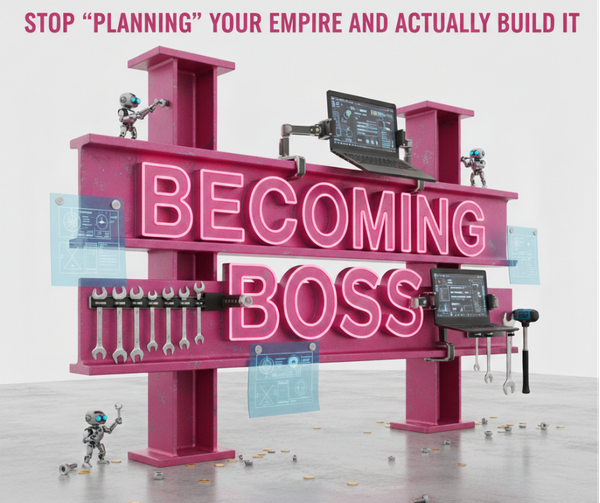Cut Costs, Not Opportunities: Budgeting Tips for Business Travel
Discover simple, no-fluff ways for non-techie small business owners to streamline their tech stack, boost productivity, and reclaim time — even if you’re feeling overwhelmed.

When you buy through links on our site, we may earn a small commission at no additional cost to you. As an Amazon Affiliate I earn from qualifying purchases. I only recommend products and services that I think will help you on your Mompreneur journey and all opinions expressed here are our own. You can read my full disclaimer here.

Business trips frequently bring growth opportunities, but without careful planning, they can also lead to gratuitous fiscal strain. From flights and hotels to daily meals and incidental costs, charges add up quickly. By developing a clear strategy before departure, trippers can maximize value while keeping spending under control. Below are five essential tips for budgeting effectively and ensuring a smooth business trip that balances both productivity and cost-effectiveness.
Research Accommodation Options Thoroughly
Lodging is frequently one of the largest charges during business travel, especially when planning a team trip. To manage costs wisely, compare multiple booking platforms and commercial travel spots before making a reservation. Numerous hotels offer business traveler discounts, loyalty prices, or packages that include breakfast and internet access at no additional charge. Choosing accommodation slightly outside the city center can also reduce costs without compromising comfort. Always weigh the benefits of propinquity to meeting locales against the eventuality of advanced nocturnal rates, and consider apartment settlements for extended stays as a cost-effective option.
Control Meal and Daily Expenses
Meal allowances frequently get overlooked during budgeting, yet they accumulate quickly. Establishing a per diem or diurnal food budget helps keep costs predictable. Encourage workers to choose restaurants with business-friendly pricing or dine at hotel eateries offering inclusive meal packages. When possible, schedule meetings over breakfast or lunch to consolidate both networking and dining charges. Grocery stores and take-out options can also cut costs during extended periods without compromising quality. Maintaining thickness in meal spending creates responsibility and prevents overspending in lower essential areas.
Manage Transportation with Strategic Planning
Getting from place to place requires careful consideration, especially when multiple workers travel together. Public conveyance and lift-sharing services frequently give affordable options, but a group trip calls for a different approach. For conferences or team events, companies can opt for the best charter bus prices and services that provide both reliability and comfort at a fraction of the cost of individual rides. Also, reserving flights well in advance generally results in significant savings, particularly when flexible trip dates are possible. By creating a transportation plan beforehand, businesses reduce last-minute charges while ensuring effective movement between destinations.

SmartStack Hive
Choose The Plan For You & Your Business
Your go-to productivity hive for mastering the tech, systems, and automations that keep your business buzzing without overwhelm. In SmartStack Hive, we stack the smartest tools, workflows, and strategies so you can work less, flow more, and scale confidently.
✨ Buzz into SmartStack Hive today — stack smart, soar higher!
Track Every Expense in Real Time
Accurate fiscal oversight requires active record-keeping. Using expenditure-tracking apps ensures that bills are captured continuously and reports remain systematized. Mobile platforms allow workers to log costs on the go, reducing errors and missed entries. Transparent shadowing not only streamlines payment but also identifies patterns that can inform future trip budgets. Businesses can also upgrade programs based on real data, minimizing waste while enhancing responsibility. By treating record-keeping as an ongoing task rather than an afterthought, companies ensure fiscal clarity and effectiveness.
Build Flexibility into the Budget
Even the most precisely drafted trip plans face unanticipated changes. Flight delays, meeting reschedules, or last-minute customer requests may alter charges. Creating a small contingency fund within the budget ensures these surprises don't beget fiscal strain. Inflexibility allows trippers to respond calmly to unlooked-for circumstances without risking the overall fiscal plan. Rather than cutting corners in critical areas, businesses can allocate exigency finances strategically, maintaining professionalism while staying within popular limits. This visionary approach prevents dislocations from derailing productivity and ensures the trip remains concentrated on its objectives.
In conclusion, budgeting a business trip effectively requires foresight, structure, and rigidity. By probing lodgment, planning transportation, managing diurnal charges, tracking spending, and erecting fiscal flexibility, companies can optimize trips without overspending. Clear strategies transform travel into productive gambles where fiscal discipline supports long-term business pretensions. With the right solutions, every trip becomes an occasion for growth rather than a burden on the bottom line.




